For a gorgeous glow from the moment you wake up, avoid these bedtime skin habits.
15 Nighttime Habits That Are Ruining Your Skin, Dermatologists Say
Evening skincare mistakes
Taking great care of your skin during the day by following practices like moisturizer and sunscreen use is important…but your nighttime skin care routine is consequential, too. The Healthy @Reader’s Digest spoke with dermatologists from across the country to reveal the nighttime mistakes you should avoid if you’re trying to keep your complexion clear.
Follow The Healthy @Reader’s Digest on Facebook, Instagram, and Twitter

Not washing your face
Desmond Shipp, MD, a dermatologist and clinical assistant professor at The Ohio State University Wexner Medical Center, suggests one major skin sin is simply going to bed without giving your face a good washing. “Even if you do not wear makeup you should wash your face nightly,” Dr. Shipp says, adding: “Your skin is going through a repairing and rebuilding phase during the nighttime and debris such as dust, smoke, and skin care products can clog your pores leading to worsening acne.”
How Bad Is It to Wash Your Face in the Shower? Skin Care Experts Explain

Skimping on sleep
There really is such thing as beauty sleep—and getting less than six hours of it at night gives your skin less time to repair itself. The National Sleep Foundation says too little sleep can lead to more wrinkles, an ashy complexion, and those dark circles under your eyes.
Not getting enough sleep can also increase inflammation and stress hormones, and—along with other disadvantages for your system—this can aggravate skin conditions like acne.
12 Innocent Habits That Are Completely Ruining Your Sleep Quality
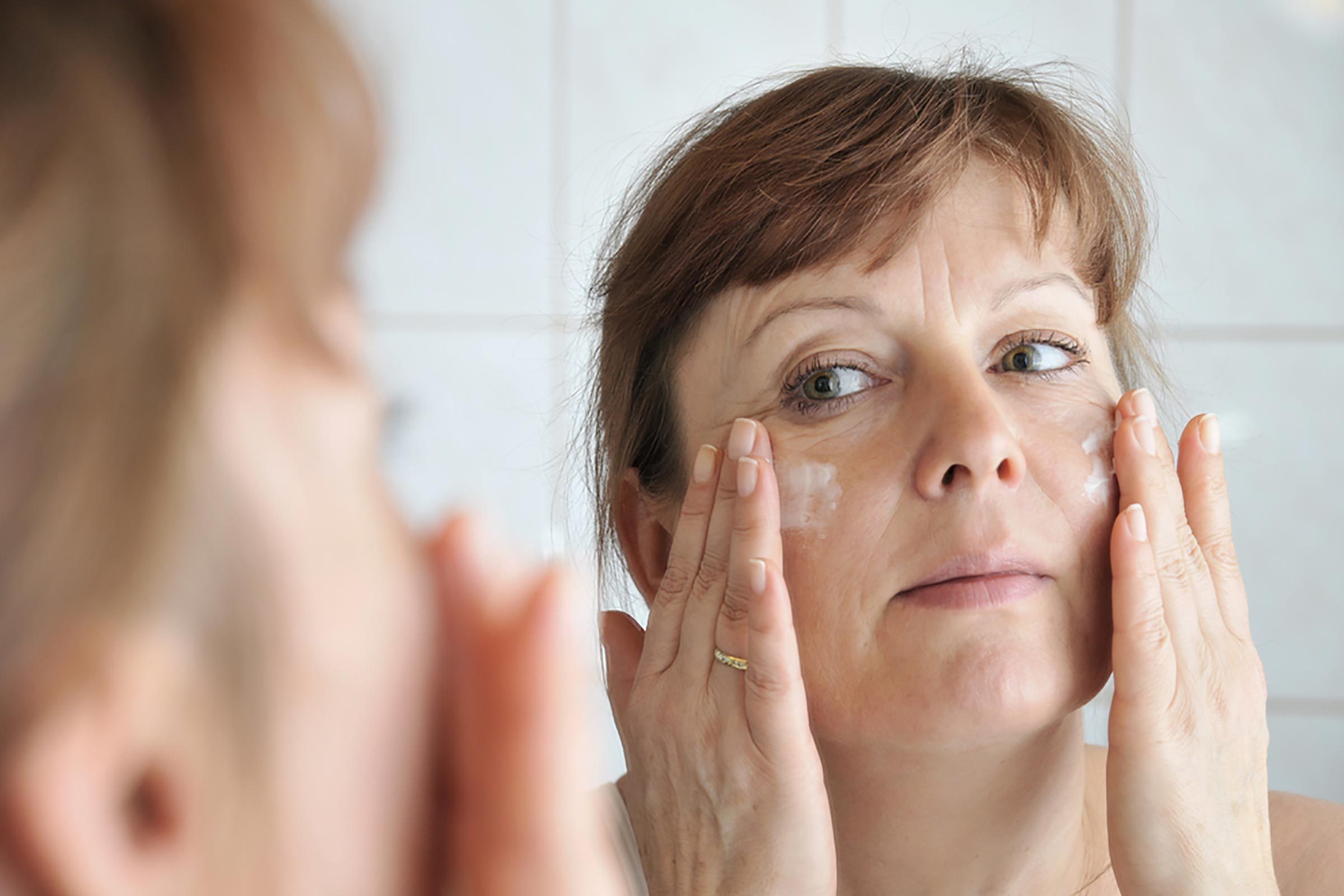
Choosing the wrong moisturizing cream
Manish Shah, MD, board-certified plastic surgeon in Denver, says, “The majority of anti-aging creams are still based on moisturizers such as mineral oil.”
Dr. Shah adds, “Wrinkles look worse when they are dry, so any kind of moisturizer helps, but many only improve things temporarily and don’t address the root cause of the wrinkles, such as collagen loss, free radical damage, sun damage, and environmental factors. Unless there is an actual ‘active ingredient’ such as retinol, the benefit is just moisture and nothing else.”
These Are the Only 3 Skincare Products a Dermatologist Says We All Need
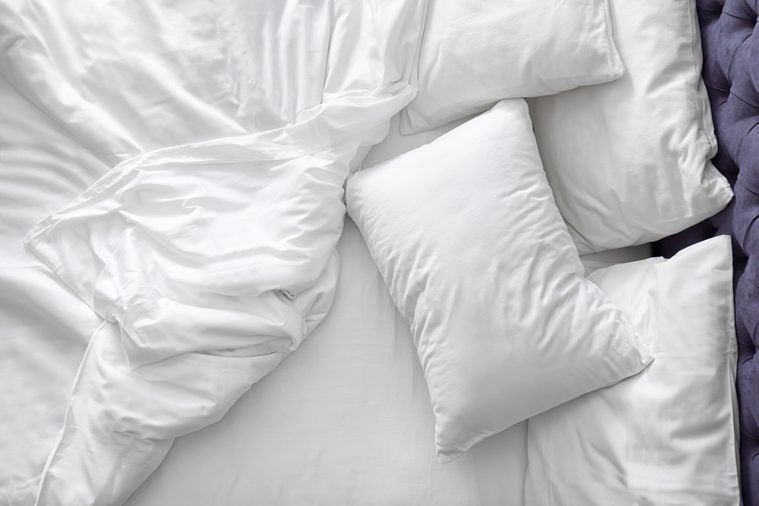
Not changing your pillowcases regularly
Sleeping on the same pillowcase night after night could expose your skin to some pretty nasty stuff, such as bacteria, sloughed-off skin, and sweat.
Dr. Shipp recommends changing your pillowcase at least weekly—more often if you’re acne-prone. (In fact, changing your pillowcase is one of the ways dermatologists achieve younger-looking skin.)
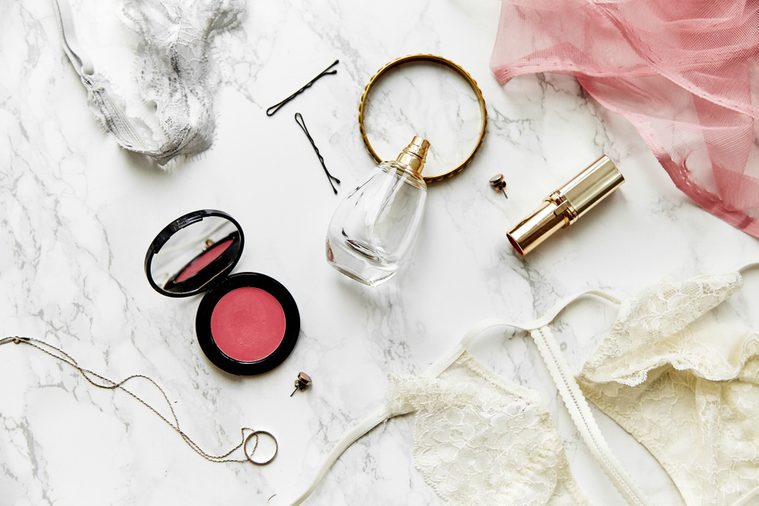
Leaving on your makeup
While many dermatologists stress that washing your face before bed is a must, some are equally adamant about clearing off every trace of makeup. “You should never sleep with makeup on your skin,” Dr. Shipp says. “You’re essentially setting yourself up for an acne eruption.”
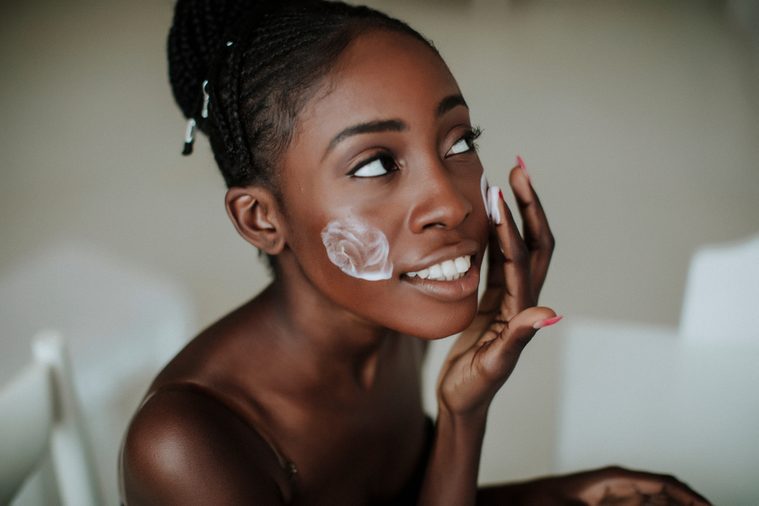
Skipping moisturizer
Moisturizer helps every skin type—not just people with dry or aging skin. If you have oily or acne-prone skin, look for a formulation that’s made for you—some formulations contain ingredients that can help you battle acne and keep your skin looking dewy. (Here’s how to use moisturizer the right way.)

Using a plain old cotton pillowcase
Upgrading your pillowcase to a silk or satin one could do wonders for your face and hair. “I recommend silk pillowcases, as they are less abrasive to the skin,” says Dr. Shipp. “They are also breathable, hypoallergenic, and less irritating.”
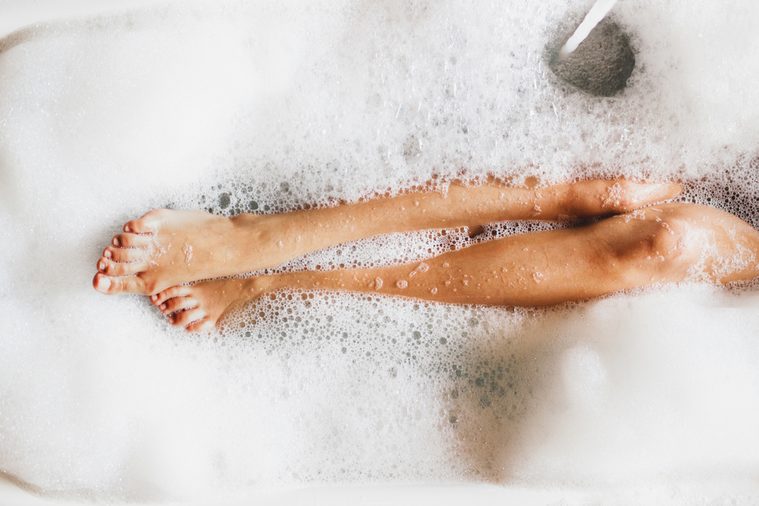
Overcleansing your skin
Too much of a good thing could be damaging to your skin. “Most patients over-cleanse their skin, compromising the moisture barrier and microbiome of the skin’s natural protective layer,” says Graceanne Svendsen, a celebrity facialist at Shafer Plastic Surgery & Laser Center in New York City. “When the helpful, natural bacteria is cleansed off, we are more susceptible to infections, breakouts and parched-looking skin.”

Not using humidity
Dry air—whether in an arid desert climate or heat in a house during the chilly months—can do a number on your skin. Some dermatologists recommend putting a humidifier in your bedroom to make it easier for your skin to maintain its moisture levels. (Here are more tips on how to fight dry skin in the cold weather.)

Keeping the room too warm
On that note, a bedroom that’s overheated often isn’t great for your skin—nor for your sleep quality. “Studies show that the body rests better at lower temperatures,” Svendsen says. “Keep your room temperature cool in the evening—don’t you get the best sleep on a cool fall night?”
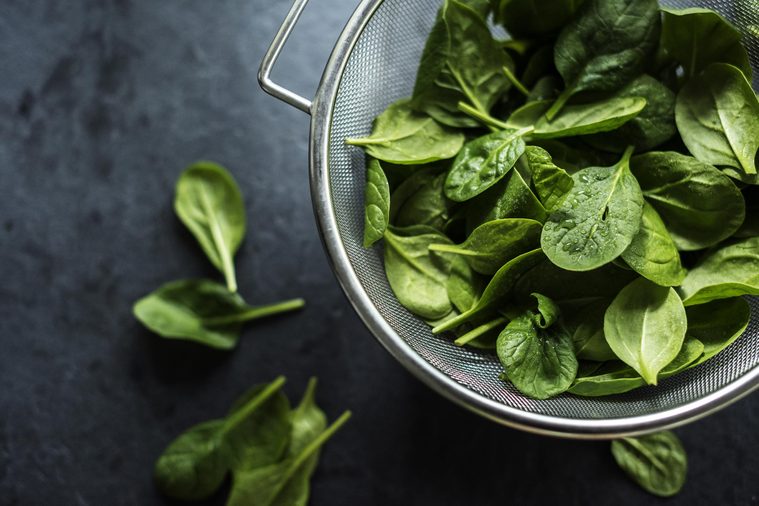
Trying to get your vitamins through your cream
While vitamin C can be helpful when applied to the skin (such as in a vitamin C serum), Dr. Shah says vitamin B isn’t quite as effective. “Many forms of vitamin B (like B12) can only be absorbed in the small intestine—so no matter how much is loaded into your moisturizer or serum, it’s not going to make a difference,” Dr. Shah says. “Vitamins like niacin (vitamin B3) can have an effect on the skin’s texture and color, but your skin can’t absorb them. If you really want to tap into the power of vitamin B to improve your skin’s glow and appearance, stick to eating leafy greens like spinach, asparagus, beans, and peas.”
A Dietitian Just Listed the 7 Best Foods to Keep Your Skin Young and Healthy
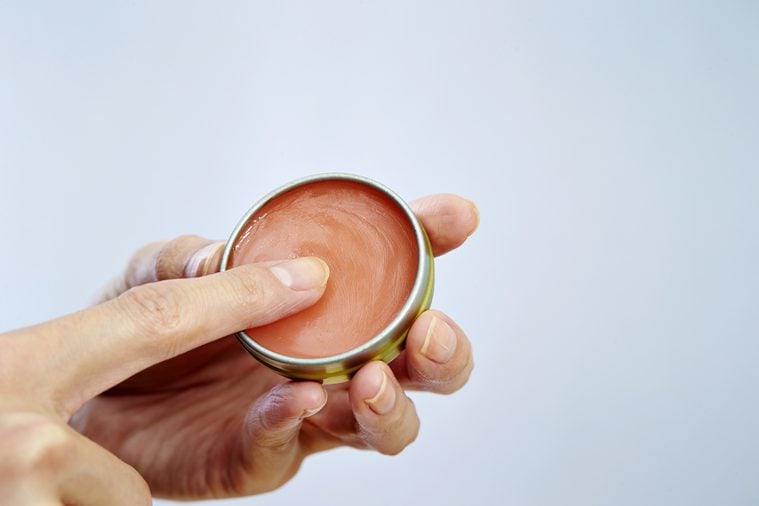
Forgetting to moisturize your lips
While slathering on night cream might be part of your evening routine, you’re likely skipping your lips, which have thin, delicate skin that’s especially prone to dryness and chapping. Skip the heavy-duty retinoids, and put on a generous coating of a lip ointment that contains shea butter, glycerin—or just a little coconut oil.
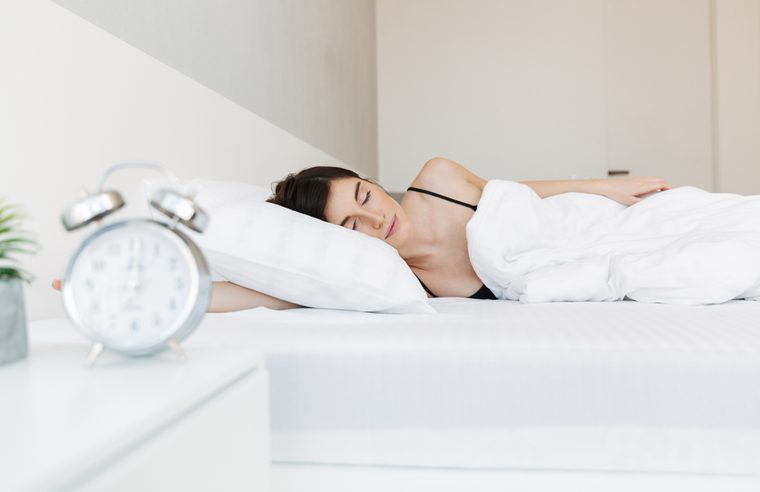
Sleeping on your stomach or side
If you’re a stomach- or side-sleeper, you could be crushing your delicate facial skin into the pillow, making it more prone to wrinkles due to the friction from the pillowcase. A softer pillowcase can help—but, unless for a health reason you can’t (such as being months into a pregnancy), it’s often best for your skin if you get used to sleeping on your back.
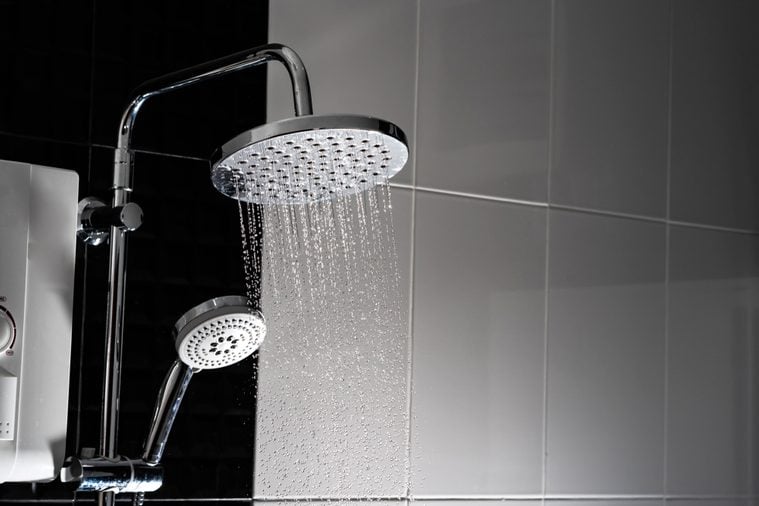
Taking a long, hot shower
“Keeping your shower water too hot can be dehydrating to the skin,” Svendsen says. Instead, keep the shower temperature on the cooler side, and be sure to slather on lotion afterward.

Eating certain snacks before bedtime
Think twice about that bowl of pretzels or chips before you snooze. The extra salt from your favorite bedtime snack can lead to excess fluid pooling—especially around the eyes. And that means puffiness in the morning. The antidote—a healthier snack, like fruit or veggies. Next, learn how dermatologists look younger overnight.
Get The Healthy @Reader’s Digest daily wellness email, and keep reading:




















